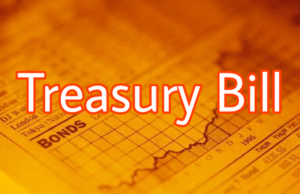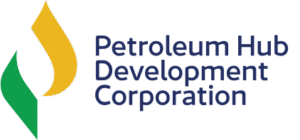Sharif Mahmud Khalid: Market Confidence Hinges on Budgets, Not Mere Spending

Ghana’s recent credit rating improvement by international agency Fitch is being attributed not to government expenditure, but to the country’s renewed focus on fiscal discipline and policy transparency. According to Dr. Sharif Mahmud Khalid, Economic Policy Advisor to the Vice President, global markets are primarily reacting to the government’s economic direction and commitment to sound budgeting—not how much it spends.
Fitch Ratings recently upgraded Ghana’s Long-Term Foreign-Currency Issuer Default Rating from ‘Restricted Default’ to ‘B-’ with a Stable Outlook, a development seen by many as a positive step in restoring market confidence. Dr. Khalid, however, clarified that this milestone is less about actual spending patterns and more about the credibility and clarity of the government’s fiscal policy.
“Capital markets respond to signals, not necessarily to transactions,” he explained in an interview. “When the government presents its budget, the market immediately begins to respond based on the assumptions, priorities, and policy direction stated in that document. You don’t have to spend a cedi before the market reacts.”
Dr. Khalid emphasized that the markets value transparency, structure, and intent over delayed execution. He noted that in today’s global financial landscape, investors and credit agencies closely monitor fiscal commitments and policy consistency rather than waiting for end-of-year financial results.
“When a budget is read and shows clear allocations and intentions, it shapes investor behavior. That’s what Fitch and similar agencies are assessing. It’s about your framework, not just expenditure,” he said.
Dispelling claims that the government may be prematurely celebrating, Dr. Khalid made it clear that the improved rating was not about domestic optimism but international recognition. “This isn’t internal hype,” he stated. “These are external assessments by agencies with no interest in Ghanaian politics. They base their decisions on what they see: policy reforms, fiscal prudence, and structural improvements.”
He pointed out that the government is not currently focused on raising new funds from the external market but is prioritizing domestic economic stability. According to him, restoring confidence in the local economy is a more immediate goal.
“We’re not chasing foreign loans at this stage,” he explained. “Our priority is to build a stable and resilient domestic economy. That’s why we’ve reinforced internal controls—cut down on unnecessary appointments, improved oversight, and strengthened institutional checks.”
Dr. Khalid highlighted several key reforms undertaken by the government to back its policy credibility. He referenced the reactivation of the Sinking Fund, a financial buffer designed to help repay debt, and the implementation of the Domestic Debt Exchange Programme as two fundamental components that contributed to the upgrade.
“When we reactivated the Sinking Fund, it was a signal to the market that we are serious about debt management,” he noted. “Fitch doesn’t just hand out upgrades—you have to demonstrate a real reduction in default risk.”
While acknowledging the economic benefits of the Domestic Debt Exchange Programme, Dr. Khalid stressed that the broader policy environment and consistent government resolve were the real drivers behind the rating change. He also referenced Ghana’s ongoing debt restructuring negotiations with external creditors, including China and the Paris Club, as part of a comprehensive approach to solvency management.
“Debt restructuring isn’t just about cutting deals—it’s about demonstrating that you’re delivering on them,” he said. “The market sees that progress and responds accordingly.”
Addressing public concerns over perceived government overspending, Dr. Khalid argued that the focus should be on the broader fiscal framework and the government’s long-term intentions.
“There’s a difference between short-term budget allocations and long-term fiscal discipline,” he said. “Markets interpret policy posture, not headlines.”
In closing, Dr. Khalid encouraged Ghanaians to evaluate the government’s economic performance through a lens of strategy and consistency, not just spending figures.
“This upgrade didn’t happen by chance. It’s the result of credible planning, disciplined implementation, and a clear signal to investors that Ghana is on a sustainable path.”








